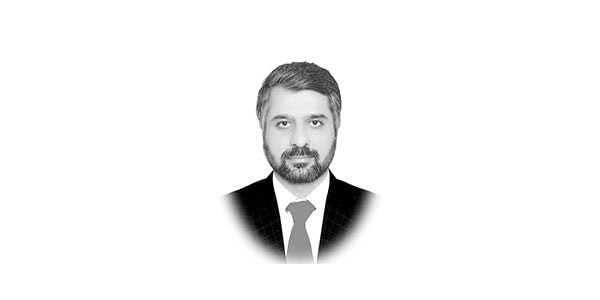Mindset and national prosperity
WHILE we typically witness a heated debate on the causes that have hindered Pakistan from overcoming its mammoth economic and social challenges, we actually overlook the stark reality that the mindset of a nation counts when it comes to national and regional development.
To say it clearly, the level of success any nation achieves is a product of the quality of mindset a nation possesses.
But what does it mean by the quality of mindset of the people of a country?
It means the ability of a nation to foresee emerging threats and challenges to take proactive measures for averting untoward consequences.
In fact, it’s the mindset that gives birth to thoughts. And our thoughts control our emotions.
Hence, it is not wrong to say that our thoughts decide the path to failure or prosperity. Verily, development and growth are the concepts that take birth in progressive minds.
The same goes for the rise and fall of nations. Having a glance at the population statistics of Pakistan, it becomes evident that most of our population is seriously deprived of the level of intellect required for making this nation a thriving nation.
To prove this point let’s ponder over the successful journey of developed nations of the world.
The case of the European Union is a vivid example in this regard. Amazingly, the twenty-seven European Union countries have more than a million scientists.
The total number of scientists and engineers in the EU is estimated to be seventeen million, and they represent twenty-three percent of all workers employed in science and technology occupations in the EU.
Isn’t it thought-provoking?? Now, let’s witness the impact of such a kind of social mindset on the growth of the European Union.
Their democracies are inclusive as their people are well informed about the characteristics of a true democracy.
People live in a social set-up which fosters peace and justice without any discrimination.
The population, largely, is well aware of its rights and obligations – which is necessary for ensuring the prevalence of rule of law in a country.
With an impressive literacy rate of almost ninety percent, almost every person contributes to the economic success of the European Union.
Their people know the importance of regional integration and so is the reason that the region of Europe has connected itself so well that all the European nations are able to reap the benefits of mutual collaboration in all sectors: especially in education, tourism and the economy.
Europeans have already conceived the notion that conflict management is the only way forward to achieve progress.
It is their national mindset that restrains them from involving in unwanted conflicts. And the number of scientists they have produced reflects their mental ability to comprehend the fact that survival lies in innovation and technology only.
The outcome of the mindset Europeans have is better than our expectations. When it comes to global influence, the voice of each of the twenty-seven EU member states receives all the due importance across the world.
This influence and success would not have been possible had the mindset of their people, which accepts unity in diversity, resisted the formation of the EU for securing mutual benefits.
On the other hand, the case of Pakistan points out an absolute absence of such kind of mindset in the country.
If we dwell deep into the issues being faced by Pakistan today, we will come across the sad reality that the difference between Pakistan and the developed world lies not in the dearth of opportunities but in the mental ability of our people and leadership to identify the causes that are shattering the foundations of our nations – obviously, it’s the difference in the social and national mindset.
Our democratic values are weak because most of our population does not even know what are the real characteristics of a true democracy.
Most people blindly believe in what their leaders tell them and the element of questioning the performance of their leaders is missing altogether.
In politics, the followers of the political parties do not have the mindset that can challenge the wrongdoings of their leadership.
Instead, many defend their leaders, without any logic and reasoning, to the point of complete shame.
Additionally, there is a prevalence of conflicting tendencies in Pakistan because people believe in safeguarding their rights through the use of illegitimate means and power, and the much-needed concept of conflict resolution, through amicable means, is largely missing from our societal strata.
To add insult to injury, widespread illiteracy in our country has transformed illiterate individuals into consumption engines that are eating away the scarce resources we are surviving on.
Illiteracy invites the curse of radicalism and radical mindsets not only trigger social schism but such minds also resist any progressive transformation of society.
Resultantly, our society, usually, resists the introduction of innovation and technology in almost all spheres of life – be it education or health.
It all has resulted in the increasing tendency of internal conflicts in Pakistan. It is not wrong to say that our regressive mindset is a hurdle in our progress and development.
Pakistan needs national integration and economic prosperity and the absence of a positive and constructive national mindset is a stumbling block to achieving national glory.
For making this happen, all the ethnic and sectarian factions, residing in the country, need to infuse the elements of tolerance, mutual co-existence, and national cohesion. We need a national mindset that can flourish tendencies of peace and stability.
Our political leadership needs to play a role in this regard. The model of the EU highlights the importance of unity.
We can learn a meaningful lesson from the nations of the European Union to shift the winds of time in our favour.
However, if we fail to change the national mindset, we will never get rid of the current challenges Pakistan is confronting today.
—The writer is CSS Officer, based in Lahore.










